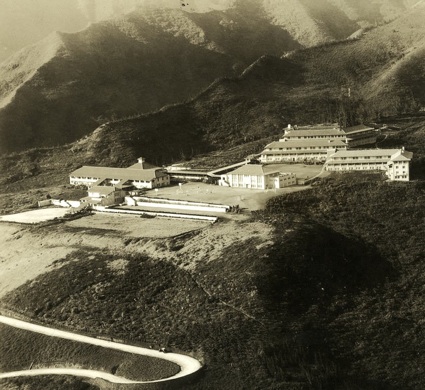The 2024 Nobel Prize in economics was awarded to three scholars, Daron Acemoglu, Simon Johnson, and James Robinson, for “studies of how institutions are formed and affect prosperity.” The three academics won the prize mostly for providing causal evidence of the influence of the quality of a country’s institutions on its economic prosperity. This particular award generated more controversy than any other in recent memory, for several reasons.
Their Contribution to Economics
Their seminal book Why Nations Fail is considered one of the most influential economic texts of the 21st century, with their core argument being that “inclusive” political and economic institutions—those that provide broad-based opportunities, protect property rights, and foster competition—are key to sustained economic growth. In contrast, “extractive” institutions, which concentrate power and wealth in the hands of a few, stifle innovation and trap nations in poverty. Acemoglu, Johnson, and Robinson’s findings draw from both historical analysis and contemporary case studies, suggesting that a nation’s institutions have a far more decisive role in its prosperity than geography, culture, or natural resources. Because their work has influenced how economists, policymakers, and historians view the root causes of poverty and inequality, it has inspired fresh debates on the role of political and economic reforms in shaping national destinies.
Critiques and Controversies
While Acemoglu, Johnson, and Robinson’s work has been widely praised, it has also attracted its fair share of criticism. One of the main critiques centers on their seemingly deterministic view of institutions. Some scholars argue that the theory oversimplifies the complex interplay of factors contributing to a nation’s economic success or failure. For instance, critics argue that the authors may downplay the role of culture, geography, and international factors in shaping economic outcomes. In regions where extractive institutions have persisted for centuries, it may be difficult to pinpoint a single cause behind economic stagnation.
Most relevant to our work here at Pōʻai ke Aloha ʻĀina, critics argue that the book overlooks how colonial powers intentionally created extractive institutions that persisted long after independence, shaping economic and political structures in ways that still affect former colonies. The authors focus more on the contemporary evolution of institutions without sufficiently addressing how colonial histories and legacies of exploitation continue to influence development outcomes in many nations today.
Additionally, their framework has been critiqued for potentially disregarding the agency of individuals and groups in challenging extractive systems. The emphasis on institutions as the key driver of economic outcomes can, at times, obscure the role of grassroots movements, political struggles, and revolutions in transforming societies, and fails to fully capture the complexities of contemporary economies. Though they argue that inclusive institutions lead to prosperity while extractive institutions lead to poverty and stagnation, they do not deeply explore the persistent wealth inequality that often exists even within countries with inclusive institutions, or account for how wealth inequality can be exacerbated by factors like colonialism, education, technological innovation, globalization, or financial markets.
One of the notable critiques of Why Nations Fail is that it does not adequately account for the economic structures and systems that existed in many societies before the advent of colonialism. In Hawaiʻi, for instance, we have identified the Ancestral Circular Economy that thrived for people and place, was largely regenerative, and redistributive of resources enabling the ancestral population to thrive for centuries prior to extractive capitalism’s introduction on Hawaiʻi shores. What other Ancestral Economies remain to be understood around the world that can inform our future economy? The book’s exclusive focus on post-colonial institutions risks oversimplifying the historical continuity of economic systems, ignoring how these ancestral economies were often disrupted, altered, or outright destroyed by colonialism. While Acemoglu, Johnson, and Robinson argue that inclusive institutions are the key to prosperity, they do not thoroughly consider how some pre-colonial Indigenous economic structures could have been more inclusive than those imposed by colonial powers. These indigenous institutions, based on cooperation, shared resources, and a holistic approach to governance, often fostered social cohesion and economic resilience. The book does not explore how these systems could have served as foundations for inclusive economies if they had not been replaced or undermined by colonial powers.
Acemoglu and Robinson primarily focus on how colonial powers created extractive institutions to exploit resources, but they give limited attention to how these institutions not only extracted wealth but fundamentally dismantled existing systems that were often more egalitarian or productive. By failing to engage deeply with these disruptions, Why Nations Fail misses an important dimension of the colonial legacy—how it shattered, restructured, or supplanted economies that had been functioning in ways that may have contributed to stability and growth.
Conclusion
While Why Nations Fail offers a compelling argument about the role of institutions in shaping economic outcomes, its failure to adequately account for the economic systems that existed before colonialism limits its understanding of the full impact of colonialism on global inequality. The book’s treatment of colonial history as a starting point for institutional analysis could be expanded by considering how pre-colonial societies were already managing complex economies and resources. A more nuanced treatment of these ancestral economies would allow for a deeper understanding of how colonialism did not just create extractive institutions but actively destroyed or perverted pre-existing, often more inclusive, systems. By omitting this, the authors miss an opportunity to fully explore the long-term consequences of colonialism, both in terms of economic development and the disruption of more equitable systems that could have laid the groundwork for sustainable prosperity.
Some critics have suggested that this award reinforces a comforting but false story about democracy and even a “bedtime story for capitalists.”
Sources
Howard French, Why This Year’s Nobel in Economics Is So Controversial, Foreign Policy (Oct. 25, 2024)
Nobel economics prize: how colonial history explains why strong institutions are vital to a country’s prosperity – expert, The Conversation (Oct. 14, 2024) Q&A








